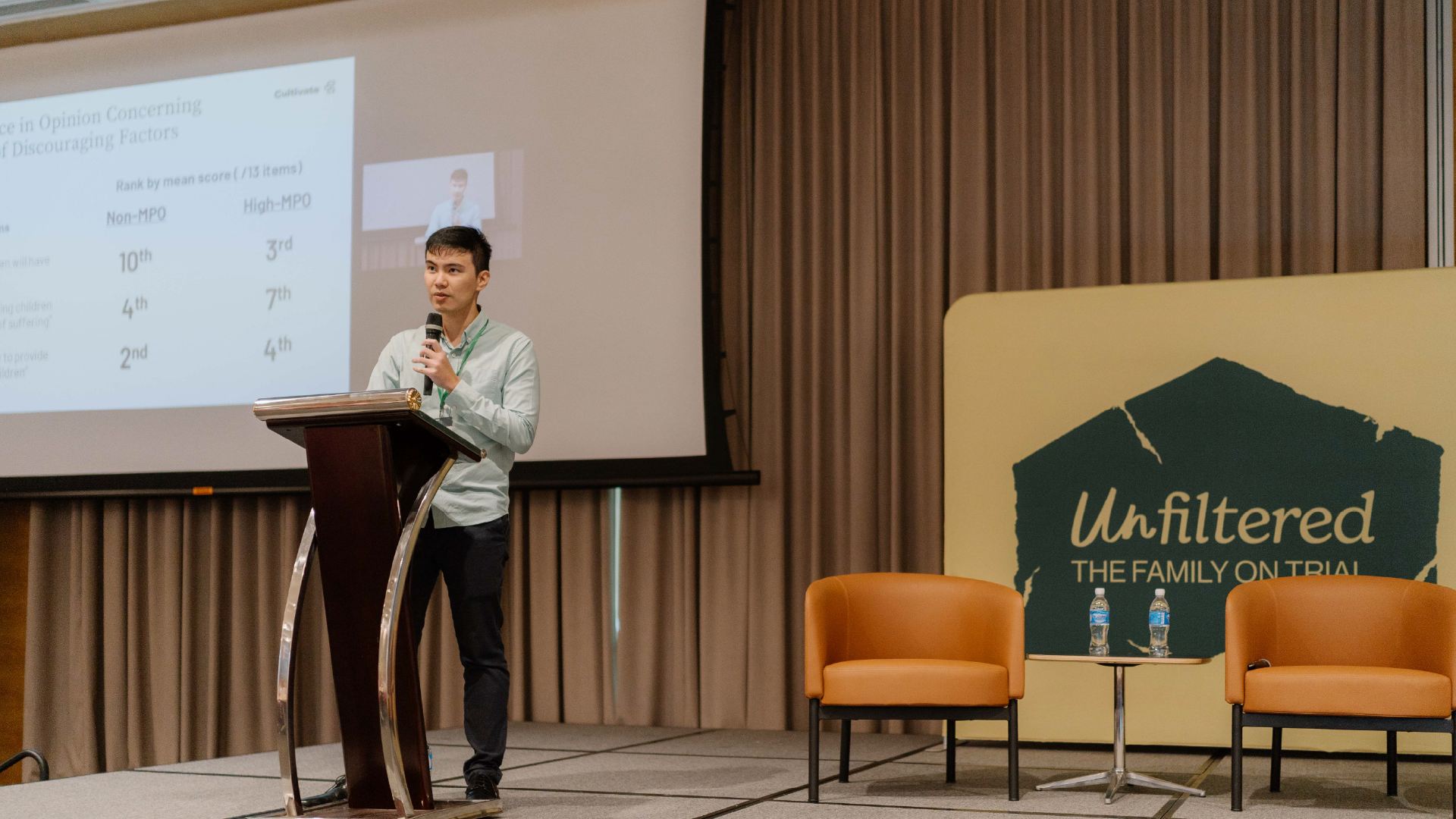Picture two 45-year-old Singaporean men, Sam and Freddy.
Sam is a wealthy CEO of a large local company, which he helped to grow from a small unknown business to what it is today. He owns and lives in a landed property in a wealthy district in Singapore and has two expensive cars. He is unmarried and has no children.
Freddy is a married father of four children. He quit his job after his first child was born, while his wife continued to work in her job of nearly 20 years. He enjoys a good relationship with his wife and children, and volunteers with a charity in his spare time.
In your opinion, between Sam and Freddy, who is living the better life? Whom would you aspire to be?
The “Singapore Dream”
For the longest time, our society had thought of a good and successful life as a kind of classic rags-to-riches journey that one could achieve through hard work.
In 1996, a Nominated Member of Parliament described the Singapore Dream this way: “If one grew up in an attap house, one could with dedication, effort and capability purchase landed property and a Mercedes-Benz, if not a Lexus to boot. That was the Singapore Dream.”
This idea was no more aptly captured than in a book titled Living the Singapore Dream by Tay Yong Soon. In his commendation contained at the front of the book, Lord Ronald Oxburgh wrote: “The Singapore Dream is that the door is open for any young person, whatever their background or circumstances, to succeed.”
Indeed, the book contains stories of many people from diverse backgrounds who became incredibly successful in their respective fields, including Engelin Teh (among the first few women to become Senior Counsel), Lee Tsao Yuan (professional economist turned consultant), Suhaimi Salleh (Founder and CEO of the SSAGroup) and the late Sadasivan Balaji (former politician and neurosurgeon). They are also friends of the author Tay Yong Soon, who concludes that: “We have lived the Singapore dream and done well for ourselves.”
Even today, most Singaporeans would probably think that Sam is living the better life, and aspire to be more like Sam compared to Freddy. Judging from Singapore’s record-low fertility rate of 0.97 in 2023 as well as the common perception of fathers as breadwinners (as our survey found), being a stay-home married father of four like Freddy is unlikely to be a life goal for many in our society.
However, the truth is that there are also many people who are not able to keep up with the rat race or climb the corporate ladder, let alone reach the same kind of success like Sam.
Chasing economic or financial success is no longer the only way to fulfil the “Singapore Dream”. As Prime Minister Lawrence Wong said in his inaugural National Day Rally, Singaporeans now want a “refreshed Singapore Dream”, which is:
A Singapore:
Where we feel for our fellow citizens and support one another.
Where we thrive and flourish on our own terms – in ways that are less prescribed and determined, more adventurous and open.
It looks like “flourishing” is one part of this “refreshed Singapore Dream”.
What is Human Flourishing?
The Harvard Institute for Quantitative Social Science has developed a “Human Flourishing Program”, to measure human flourishing according to five central domains: happiness and life satisfaction, physical and mental health, meaning and purpose, character and virtue, and close social relationships. According to the Institute, each of these aspects is “nearly universally desired”, and has intrinsic value, constituting “an end in and of itself”.
It is based on the research of Professor Tyler J. VanderWeele, who is director of the Human Flourishing Program.
On top of the five domains, VanderWeele has also added “financial and material stability” to the measure of human flourishing. Even though these “would not generally not be viewed as ends in themselves”, he included this measure because these may indicate the ability to sustain flourishing in the five domains over time.
However, VanderWeele is clear that the five domains are only meant to provide “common ground” for discussion on human flourishing; there could be other measures. For example, a religious person might wish to include some idea of “communion with God or the transcendent”.
(For the “Flourishing Questions” across five central domains and the additional domain of financial and material stability, please see the end of this article.)
Material Success, Flourishing or…?
Coming back to our “refreshed Singapore Dream”, all of us are part of this ongoing life journey where we need to figure out our life goals and priorities.
In our examples above, the snapshots of Sam and Freddy represent two stories at a certain point in time, who have pursued different goals:
- Sam represents the traditional understanding of the Singapore Dream, which is focused on achieving material success in life through hard work.
- Freddy represents Flourishing, living a life which is fulfilled in various important ways, and not defined in terms of material success.
To be sure, Sam may not be failing at flourishing, and Freddy may not be materially poor.
Freddy may not fit within the traditional understanding of the “Singapore Dream” because of his lack of clear material success. However, a reflection on the concept of human flourishing will show us that Freddy’s life is indeed flourishing in certain important ways, especially in the area of close social relationships (with his wife and children) and in seeking meaning and purpose (through volunteering with charity).
This should challenge us to think about our life goals on both a personal and societal level. Are we pursuing material success, at the expense of nurturing and cultivating other important aspects of our lives?
As a society, do we celebrate only those people who are successful in financial or material ways, or do we value everyone, even those who are not so well-off? Do we value our social relationships, including our spouses, families and children? Do we seek the flourishing of society and the community?
~~~
The Human Flourishing Program
at Harvard’s Institute for Quantitative Social Science
The Flourishing Questions
Domain 1: Happiness and Life Satisfaction.
1. Overall, how satisfied are you with life as a whole these days?
0=Not Satisfied at All, 10=Completely Satisfied
2. In general, how happy or unhappy do you usually feel?
0=Extremely Unhappy, 10=Extremely Happy
Domain 2: Mental and Physical Health.
3. In general, how would you rate your physical health?
0=Poor, 10=Excellent
4. How would you rate your overall mental health?
0=Poor, 10=Excellent
Domain 3: Meaning and Purpose.
5. Overall, to what extent do you feel the things you do in your life are worthwhile?
0=Not at All Worthwhile, 10=Completely Worthwhile
6. I understand my purpose in life.
0=Strongly Disagree, 10=Strongly Agree
Domain 4: Character and Virtue.
7. I always act to promote good in all circumstances, even in difficult and challenging situations.
0=Not True of Me, 10=Completely True of Me
8. I am always able to give up some happiness now for greater happiness later.
0=Not True of Me, 10=Completely True of Me
Domain 5: Close Social Relationships.
9. I am content with my friendships and relationships.
0=Strongly Disagree, 10=Strongly Agree
10. My relationships are as satisfying as I would want them to be.
0=Strongly Disagree, 10=Strongly Agree
Domain 6: Financial and Material Stability.
11. How often do you worry about being able to meet normal monthly living expenses?
0=Worry All of the Time, 10=Do Not Ever Worry
12. How often do you worry about safety, food, or housing?
0=Worry All of the Time, 10=Do Not Ever Worry


